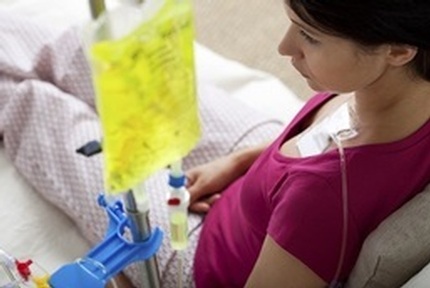Radical changes to NHS diagnosis of cancer to ensure test results within four weeks
Major reforms recommended by the Independent Cancer Taskforce (ICT) will lead to an 80 per cent increase in the number of cancer tests, with NHS patients in England given a definitive diagnosis within a month to enable treatment to be started more quickly.

The Independent Cancer Taskforce is made up of expert groups including NHS England, the Royal College of Surgeons, the Royal College of GPs and cancer charities.
The five-year plan, which aims to make substantial improvements in cancer care in England thereby helping the NHS to achieve world-class cancer outcomes, comes at a time when cancer cases are increasing. It is estimated that implementation of this plan could help an extra 30,000 patients survive for 10 years after diagnosis.
Some 280,000 people were diagnosed with cancer in England in 2013/14 and this figure is expected to reach more than 300,000 by 2020, and more than 360,000 by 2030. Harpal Kumar, chair of ICT, said: “We have an opportunity to save many thousands of lives from cancer every year. We’re better informed than ever about how best to prevent, diagnose and treat the disease, and how to deliver better patient experience and quality of life. What’s needed now is action.
“Three previous cancer strategies did a great job of setting England on the path to a world class cancer service. But we are a long way from where we should be. Our expectation is that the Government and NHS will now make the investments required and implement this strategy with commitment and speed.”
The improvements will cost £400m a year, but the taskforce believes that in the long term, this will be recouped as better care costs less money.
Simon Stevens, the chief executive of NHS England, said the initiative would also replace a range of outdated equipment and mean that the UK has a “world class” cancer service within five years.
Figures show that the UK has one of the lowest cancer survival rates in Europe, with around 10,000 more cancer deaths a year compared with similar countries. “One in two of us will get cancer at some point in our lives, and the good news is that survival rates are their highest ever,” said Mr Stevens. “But two fifths of cancers are preventable, and half of patients are currently diagnosed when their cancers are advanced.”
The report sets out a five-year plan for the health service, with measures to be achieved including:
•95 per cent of patients given a definite cancer diagnosis within four weeks;
•Patients to self-refer themselves for vital tests;
•GPs given the power to order specialist tests such as CAT scans;
•An 80 per cent increase in the number of cancer tests carried out;
•Major investment in new radiotherapy equipment;
•National action plans on reducing smoking and obesity.
The report estimates the cost of cancer services in the UK will double by 2020 to £13bn, but says its recommendations will reduce costs in the long term. If a patient is diagnosed with bowel cancer at an early stage it costs the NHS £3,500, but for late diagnosis the cost more than triples to £12,500.
Sara Hiom, Cancer Research UK’s director of early diagnosis, said: “England’s cancer survival is not what it should be, and our research shows that the health service is struggling. If acted on, this strategy has the potential to transform people’s experiences of cancer care as well as their chances of beating the disease.”
However, Juliet Bouverie, director of services and influencing at Macmillan Cancer Support, warned: “As the number of people living with cancer grows every day, and the NHS is pushed to its limits, cancer care in this country is at breaking point. That’s why it is vital that the Government and NHS commit to implementing and fully funding these recommendations with immediate effect.”
Latest News
 29-Jul-24
Dementia Bus gives carehome.co.uk staff insight into life with dementia
29-Jul-24
Dementia Bus gives carehome.co.uk staff insight into life with dementia
 01-Mar-24
Find out the top care homes in 2024
01-Mar-24
Find out the top care homes in 2024
 21-Mar-23
UK's top care homes in 2023 revealed
21-Mar-23
UK's top care homes in 2023 revealed
 03-Jan-23
carehome.co.uk launches free care helpline
03-Jan-23
carehome.co.uk launches free care helpline
 13-Dec-22
5 mins with Emily Whitehurst, chief operating officer for Constantia Healthcare
13-Dec-22
5 mins with Emily Whitehurst, chief operating officer for Constantia Healthcare